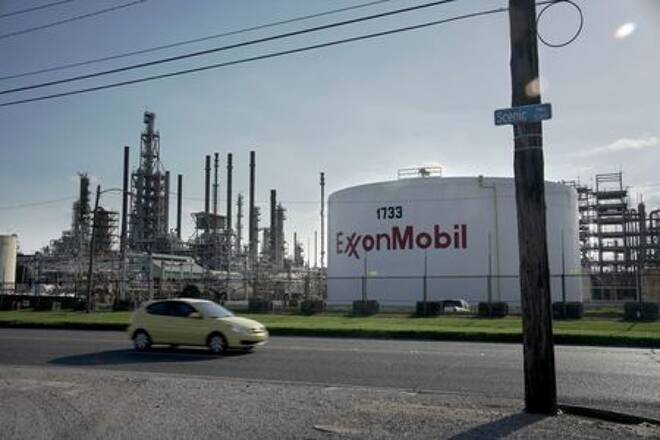Advertisement
Advertisement
U.S. Oil Refiners Use Iraqi, Canadian Crudes to Replace Storm Losses – Traders
By:
HOUSTON (Reuters) - U.S. oil refiners hunting to replace storm-lost U.S. Gulf of Mexico crude have been turning to Iraqi and Canadian oil, while Asian buyers have been pursuing Middle Eastern and Russian grades, analysts and traders said.
Royal Dutch Shell, the largest producer in the U.S. Gulf of Mexico, this week said damage to an offshore transfer facility will limit Mars sour crude supplies into early next year. The Mars sour grade of U.S. oil is used heavily by U.S. Gulf refiners and companies in South Korea and China, two top destinations for U.S. crude exports.
The United States now generally exports more than 3 million barrels of oil per day, most from the U.S. Gulf Coast. With overall fuel demand rebounding to pre-pandemic levels, refiners will need to make up for the Mars shut-ins.
The loss of up to 250,000 barrels per day (bpd) has some U.S. refiners seeking replacements for fourth-quarter delivery, especially Iraq’s Basrah crude, traders said. Others received supplies of sour crude from U.S. storehouses.
Basrah crude has come to the fore during past disruptions. In 2019, when U.S. sanctions on Venezuela cut off heavy crude grades to Gulf refiners, Iraq rapidly boosted cargoes. Canadian heavy-oil suppliers also benefited.
EMERGENCY SUPPLIES
Exxon Mobil and Placid Refining Co have received oil from the U.S. Strategic Petroleum Reserve (SPR), addressing immediate needs for sour crude.
“Refiners that needed to specifically replace Mars barrels requested sour crude from the SPR. Many others are buying extra cargoes of Basrah for October delivery, whose prices were very convenient as sour crudes in general are under pressure,” a U.S. Gulf crude trader said.
Earlier this month, Mars crude traded as high as a $1.50 premium over WTI but on Wednedsay it was offered at a $2.25-per-barrel discount to the U.S. benchmark, returning to pre-storm levels. Most of the nine U.S. refineries that halted output during Ida have returned to production.
Refiner Marathon Petroleum bought Basrah for October loading, one trader said. Refiners able to process and blend heavier crudes also have shown interest in Canadian and Latin American grades, traders added. Marathon declined to comment.
U.S. Energy Information Administration preliminary data through Tuesday showed imports from Mexico and Brazil rising after the storms.
CUSHIONING EXPORTS
Of the up to 250,000 bpd of lost Mars crude production, about 80,000 bpd typically are sent to Asian refineries, according to cargo tracking firm Vortexa.
South Korea has accounted for about two-thirds of Mars exports this year, said Kpler oil analyst Matt Smith. China’s Unipec and South Korea Energy boosted Mars purchases ahead of the storm to take advantage of favorable prices.
Unipec recently bought 200,000 tonnes of Russia’s Urals crude for October delivery amid a broader weakness in price differentials.
South Korea’s second largest refiner, GS Caltex Corp, had a Mars cargo canceled that had been set to arrive in late November, and the company has not yet looked for replacement crude, according to traders.
Unipec’s parent, Sinopec, and GS Caltex did not reply to after-hours requests for comment.
For a look at all of today’s economic events, check out our economic calendar.
(Reporting by Arathy S Nair in Bengaluru, Marianna Parraga in Houston and Florence Tan in Singapore; Editing by David Gregorio)
About the Author
Reuterscontributor
Reuters, the news and media division of Thomson Reuters, is the world’s largest international multimedia news provider reaching more than one billion people every day. Reuters provides trusted business, financial, national, and international news to professionals via Thomson Reuters desktops, the world's media organizations, and directly to consumers at Reuters.com and via Reuters TV. Learn more about Thomson Reuters products:
Latest news and analysis
Advertisement
